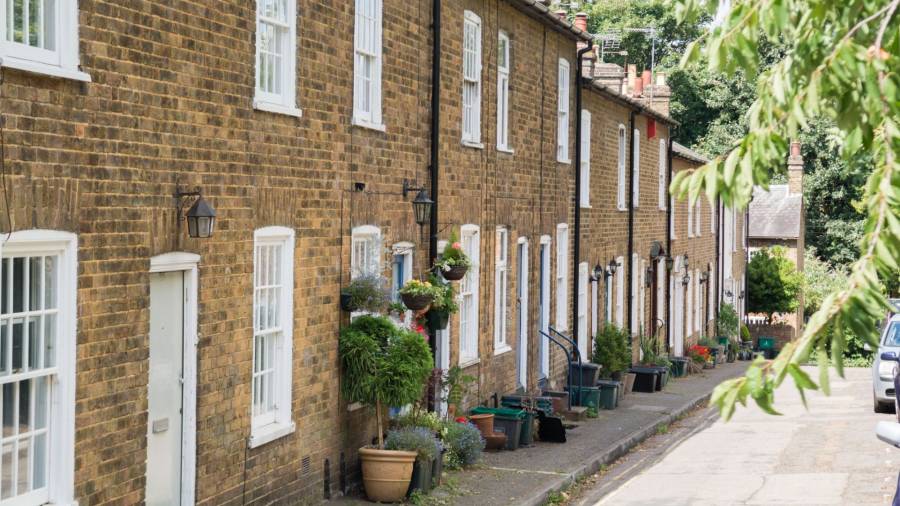Decarbonisation in Europe
What can a post-Brexit UK Government learn from the EU’s decarbonisation policies?

INNOVATION & IMPROVEMENT
Image: Istock
Joost Nieuwenhuijzen
Managing Director, European Federation for Living


Lily Maxwell
Network Coordinator, European Federation for Living
In a world where sustainability has become a priority, the building – and in turn housing – sector is a key battlefield in the fight for a healthier planet.
As the EU’s recent Renovation Wave report highlights, buildings are responsible for 40% of the EU’s total energy consumption, and 30% of its greenhouse gas emissions from energy. It is estimated that buildings’ greenhouse gas emissions need to decrease by 60%, compared to 2015 levels, if we are to achieve the continent’s 55% emission reduction target by 2030.
Given this, in recent years, both the EU and the British Government have put in place legislation, policy and funding programmes to assist the construction and housing industry in achieving national and continental sustainability targets. In Europe, the EU Green Deal, which seeks to make the continent climate-neutral by 2050, was approved by the European Parliament in 2020, with the aim of enshrining the Paris Agreement in EU policy and law.
On 14 July 2021, the European Commission officially adopted a set of principles and regulations that aim to align the EU’s climate, energy, transport and taxation policies with the goal of reducing net greenhouse gas emissions by at least 55% by 2030, compared to 1990 levels. This is going to mean big changes across all industries operating in the EU in the next decade, and the housing and construction industry will be no exception. So what are the key measures?
The EU Green Deal has three main initiatives that focus specifically on housing and the built environment.
01
Renovation Wave
The first is the ‘Renovation Wave’, which focuses on making the EU’s building stock energy-efficient and even climate-neutral via deep retrofits.
The EU is encouraging investment and financing of building stock renovation via the EU’s pandemic recovery instrument NextGenerationEU which, alongside the EU’s Multiannual Financial Framework, will make available an unprecedented volume of resources (around €750 billion), some of which can be used to ‘kick-start renovation for recovery, resilience and greater social inclusion’.
This includes the Recovery and Resilience Facility, which has a total budget of €560 billion, REACT-EU (supplying €55 billion-worth of additional cohesion policy funding from 2020 – 2022) and the so-called Just Transition Mechanism, which aims to ‘finance the transition’ while ‘leaving no one behind’.
The latter will be a key tool for mobilising private finance for sustainable buildings, covering three central funding pillars: the Just Transition Fund, InvestEU and European Investment Bank (EIB). Crucially, it offers a public-backed funding guarantee that is often the missing part of the puzzle in many countries when it comes to sustainable renovation.
Additional funding from other European programmes or funds, such as Horizon Europe, Interreg and JPI Urban Europe, will also be available for housing and community development projects.
It should be noted that while UK organisations are excluded from some funds, such as those that fall under the Just Transition Mechanism, they are still eligible for Horizon Europe funding.
02
New European Bauhaus Project
The second initiative is the New European Bauhaus project (of which EFL is a partner organisation), launched in January 2021 and supposedly a passion project of European Commission President, Ursula von der Leyen.
The EC calls it an environmental, economic and cultural project that aims to create a new design movement for ‘future [sustainable] ways of living’ .
03
Sustainable Built Environment
The third upcoming initiative is the EU Strategy for a Sustainable Built Environment, which will be launched in 2021 as part of the Circular Economy Action Plan (CEAP).
After seeing that the EU was openly questioning its intentions to support sustainability targets for the built environment, 31 expert organisations in sustainable construction and urban development signed an open letter in March 2021.
They are calling for an ‘ambitious EU Strategy for a Sustainable Built Environment (SSBE) to be published by the end of 2021, in line with commitments set in the CEAP’.
The focus of the Strategy for a Sustainable Built Environment will be to address sustainability throughout the lifecycle of buildings. There is even talk of setting carbon reduction targets and revising end-of-life material recovery targets (within EU legislation) for construction and demolition waste.
Promising start
Overall, we see a promising start to a new EU approach to housing, with an increased focus on promoting and funding sustainability and affordability.
Housing and urban development are still not an official competence of the EU, but there are also ‘increasing calls to establish an EU-wide housing policy’.
Whether this will happen anytime soon is unclear. In the meantime, the affordable housing sector will continue to keep its eyes closely fixed on Brussels.
About EFL
The European Federation for Living (EFL) is one of Europe’s key organisations promoting energy efficiency in the affordable housing sector. Its members, which represent roughly 1.5 million homes in Europe, are frontrunners in terms of adapting to stricter energy standards and investing sustainably in their properties.
As an exchange network, EFL stimulates knowledge and experience exchange in the fields of residential renewable energy production, deep renovation, circular and low-waste construction, and many other topics, among the main affordable housing players in Europe.
Recently, EFL also brought together a consortium of roughly 35 international partners for a Green Deal Horizon 2020 call, with the aim of creating a decarbonisation strategy for a number of large social housing portfolios in Europe.


